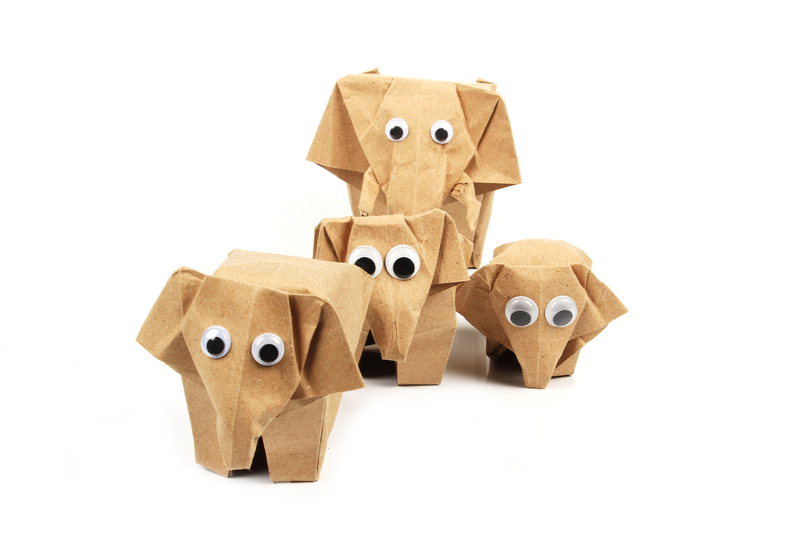Posted on 27/04/2025
Quick Tips for Less Waste
In today's fast-paced world, waste generation has become a significant concern. The detrimental impact of excessive waste on the environment, wildlife, and human health is alarming. Engaging in waste reduction practices not only helps in conserving natural resources but also reduces pollution and saves money. This article offers quick, practical tips to minimize waste, making the transition to a sustainable lifestyle manageable and impactful.
Assess Your Current Waste
Before diving into waste reduction strategies, it is crucial to understand your current waste output. Start by conducting a waste audit, which involves collecting and categorizing the trash your household produces over a week. Analyze the results to identify common waste items and prioritize areas for improvement.

Embrace the 5 R's: Refuse, Reduce, Reuse, Recycle, and Rot
The 5 R's provide a comprehensive framework to systematically reduce waste:
- Refuse: Avoid products that generate waste. Say no to single-use items and unnecessary packaging.
- Reduce: Minimize consumption by choosing durable, long-lasting products. Practicing mindful purchasing can significantly cut down waste.
- Reuse: Repurpose items instead of discarding them. Reusing extends the life cycle of products and reduces the need for new purchases.
- Recycle: Properly separate recyclables from non-recyclables. Educate yourself on local recycling guidelines to ensure effective sorting.
- Rot: Compost organic waste, turning food scraps and yard debris into nutrient-rich compost for gardens.
Opt for Reusable Alternatives
Incorporating reusable products into your daily routine is a straightforward method to lessen waste. Here are some suggestions:
- Reusable Bags: Bring cloth or canvas bags when shopping to avoid plastic bags.
- Refillable Water Bottles: Invest in a high-quality water bottle to reduce plastic bottle consumption.
- Cloth Napkins and Towels: Swap paper towels and napkins with washable cloth alternatives.
- Silicone Food Storage Bags: Replace single-use plastic bags with durable, reusable silicone bags for storing food.
- Rechargeable Batteries: Opt for rechargeable batteries to lessen hazardous waste from disposables.
Smart Shopping Habits
Adopting eco-friendly shopping habits can dramatically reduce waste:
- Buy in Bulk: Purchasing in bulk reduces packaging waste. Bring your own containers to refill bulk items at stores.
- Support Local Businesses: Buying local often reduces packaging and transportation waste, supporting community sustainability.
- Choose Eco-Friendly Brands: Opt for products from companies committed to sustainability and minimal packaging.
- Pre-Owned Goods: Consider second-hand stores, online marketplaces, and thrift shops for gently used items.
Efficient Waste Separation
Proper waste separation is vital for effective recycling and composting:
- Label Bins: Use clearly labeled bins for recyclables, compost, and trash to simplify sorting.
- Follow Local Guidelines: Be aware of local recycling regulations to ensure proper disposal.
- Compost Bins: Set up a compost bin for organic waste, diverting it from landfills.

Waste Reduction at Home
Implementing waste reduction strategies at home can yield significant results:
- DIY Cleaning Products: Create homemade cleaning solutions to avoid plastic packaging and harmful chemicals.
- Meal Planning: Organize your meals to minimize food waste. Use leftovers creatively to reduce discarded food.
- Energy Efficiency: Use energy-efficient appliances and light bulbs to reduce energy waste.
Conclusion
Reducing waste is not merely an environmental responsibility but a vital aspect of sustainable living. By assessing your current waste, embracing the 5 R's, opting for reusable alternatives, adopting smart shopping habits, ensuring efficient waste separation, and implementing home waste reduction strategies, you can significantly decrease your environmental footprint. Small changes, when multiplied by millions, can transform the world. Start today and contribute to a cleaner, greener planet.
Remember, the journey to zero waste is gradual. Patience and persistence are key. Celebrate each step, no matter how small, towards a more sustainable lifestyle.
Latest Posts
Tips for Proper Disposal of Regular Waste
Garbage Cleanup Bags - Efficient Skip Substitute

































 Get a Quote
Get a Quote